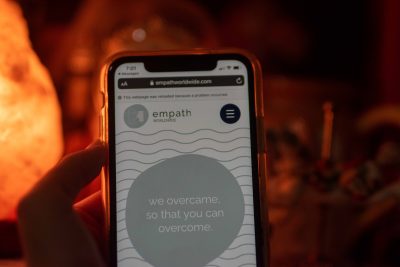In an economy significantly impacted by COVID-19 and a nation slowly recovering from financial hardship, many small businesses are left struggling to operate and compete. With these concerns in mind, Boston University students are addressing the need for public relations services by offering to work at no cost.

Their efforts coalesced into a pro bono integrated communications firm called “empath worldwide,” which now works with 14 clients across 10 time zones. The firm, which launched Aug. 1, is modeled on existing PR agencies and offers media relations, event planning, social media and branding services free of charge.
College of Communication senior Maya Malekian, founder and co-executive director of empath worldwide, said she was attending PR seminars at the beginning of the summer when she was struck with motivation to apply her knowledge from the classroom on the outside world.
Malekian said she created the firm to unite professionals with businesses that are experiencing adversity during the pandemic but are still passionate about achieving their goals and positively affecting their neighborhoods.
“There’s an opportunity now for aspiring professionals to put everything they’re learning to work,” Malekian said. “But there’s also an opportunity now, with these lessons we’re learning about authentic and empathetic communication, that could be applied to support our communities and communities around the world.”
To eliminate financial barriers caused by the pandemic, empath worldwide does not currently charge for its services, Malekian said. Whether or not this will change as the organization grows, she said the core values behind the pro bono aspect will always be a part of empath.
“I think that pro bono is not just about not charging, it’s about the mindset and the purpose behind that,” Malekian said. “‘Pro bono’ translates to ‘for good’ and so, that concept of ‘for good’ is something that is a driving force for all of us.”
Currently, the team consists mostly of Boston-based students as well as recent graduates from around the world who refer to themselves as “creatives” and work with clients on a one-, three- or six-month basis.
Archelle Thelemaque, the director of media relations and a senior in COM, said many of their clients have a close relationship with a creative in their local community. With Thelemaque in Georgia and Malekian in California, the outreach of the firm is global.
“We have a director who lives in Nigeria, so if she reaches out to a business in her community, then we are now touching both Georgia and Nigeria,” Thelemaque said. “And that’s what’s really cool about empath, is that we’re seeking out these businesses in our respective communities and trying to do the work that’s really locally based.”
One of their newest clients, Savvy Sapiens, is a Hong Kong-based personal and professional growth platform for young adults. Divya Samtani, the platform’s co-founder, said empath worldwide will mainly provide media relations services and social media support for an upcoming online program.
Samtani wrote in an email that she has been impressed with the client experience so far.
“I’ve worked in the agency space myself for a number of years and their professionalism is beyond anything I could have ever expected, and honestly beyond much that I’ve even experienced myself,” Samtani wrote. “The entire on-boarding process and overall communication has been absolutely seamless.”
Empath worldwide has received many questions about how its team will fund itself as a pro bono firm, which Thelemaque said has everything to do with the group’s dedication. She said empath has proven that, when faced with extraordinary challenges such as the pandemic, past and present students can find unique ways to help their community overcome their obstacles.
“My immediate answer is that we are creative and we’re innovative, and we find ways to do really first-class work while not having the huge backing of funds like a lot of big agencies do,” Thelemaque said. “I think that’s just one step toward what we can do to help remedy a lot of the things that went wrong during the pandemic, by just doing our part as communicators to lead in the efforts to begin to heal the world.”


























































































































